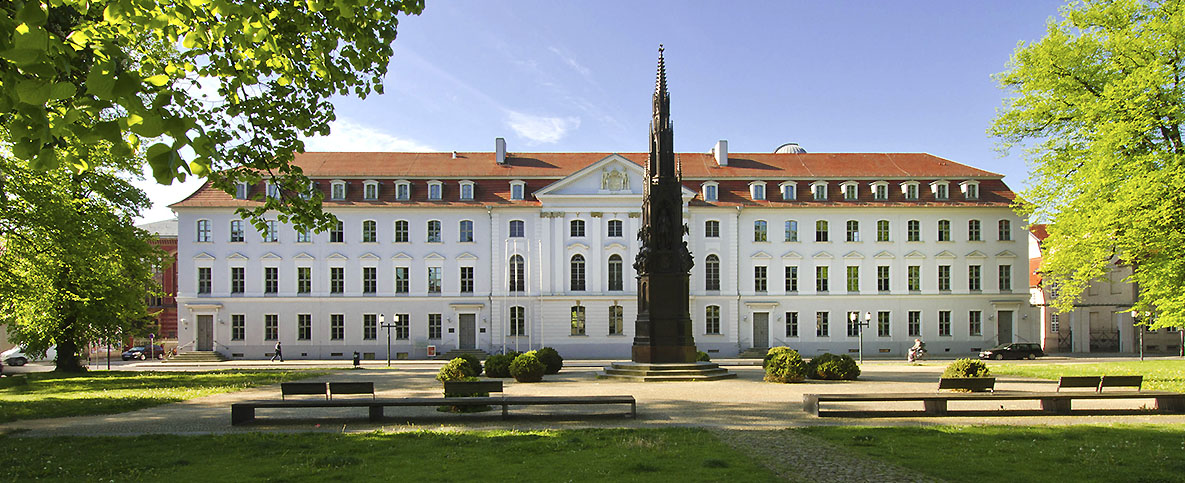Helmholtz-Institute for One Health (HIOH)

The Helmholtz Institute for One Health (HIOH) in Greifswald was founded in 2021 as an off-site location of the Helmholtz Centre for Infection Research (HZI). In close cooperation with its local founding partners, the University of Greifswald, the University Medical Center Greifswald and the Friedrich-Loeffler-Institute Federal Research Institute for Animal Health Greifswald-Riems, the HIOH is dedicated to interdisciplinary research on the interrelationships between human, animal and environmental health. Our goal is a better understanding of zoonotic diseases, antimicrobial resistance and the evolution of pathogens as a prerequisite for successful pandemic preparedness and prevention.
About the location





The Helmholtz Institute for One Health (HIOH) in Greifswald is a new institute of the Helmholtz Centre for Infection Research (HZI). The institute is closely interlinked with its local founding partners: the University of Greifswald, the University Medical Center Greifswald and the Friedrich-Loeffler-Institut. HIOH will address the threat posed by the emergence of novel pathogens as well as the evolution of known pathogens, including their antimicrobial resistance (AMR). HIOH will adopt a comprehensive research approach, including the integrated monitoring and improvement of human and animal health, as well as environmental and climatic factors.
The current world population of about 8 billion people is projected to increase beyond 11 billion by the year 2100. Due to globally increasing anthropogenic impact, the climate is changing, human-animal contact is intensifying and more and more wilderness is being transformed into farmland. In concert, these transformations lead to an increased risk for the transmission of zoonotic pathogens from the vast microbial diversity found in wildlife and the environment to humans. Globalization then allows locally emerging pathogens to spread around the world rapidly, as recently experienced for the COVID-19 pandemic. The rapid development of resistance against vaccines and therapeutics further aggravates the threat posed by zoonotic pathogens. This implies that global human health is a product of human interactions with animals and the environment. As a result, siloed approaches focused on human or animal health in isolation, will fail at understanding disease emergence and hinder the development of preventive measures. Integrative transdisciplinary approaches working in a One Health framework, that is a holistic approach, which focuses on the health of humans and animals within their environment, are clearly needed to deal with these complex multifaceted problems.
The Research Concept
The Helmholtz Institute for One Health, implements such a transdisciplinary design. The main focus of this new site of HZI is to investigate the interfaces of human, animal and environmental health through longitudinal and comprehensive sampling and data collection and -analysis related to emerging infections/microbes and resistance in two model regions. One focal area will be the African tropics, since this area is a hotspot for disease emergence and AMR. The other focal area will be directly at HIOH’s doorstep in Mecklenburg-Western Pomerania, Germany. These focal areas will be complemented by third party funded global activities together with various partners and networks, e.g. in further hotspots for disease emergence, such as Asia. HIOH will generate, analyze, and integrate both high-resolution longitudinal health and pathogen data at human-animal interfaces.
These activities are significantly strengthened by embedding the HIOH in the existing network of internationally recognized founding institutions, through which a broad spectrum of key disciplines is synergistically contributed, in particular human and veterinary medicine, microbiology, virology, epidemiology, drug discovery, biodiversity research, anthropology, sociology, evolutionary biology and ecology. The quality, quantity, and diversity of integrated data generated by the HIOH will provide a new mechanistic understanding of what perturbations are caused by changes in individual parameters, opening opportunities to better control the spread of dangerous microbes in the future. Three planned research departments will focus on (1) ecology and emergence of zoonotic diseases, (2) epidemiology and ecology of antimicrobial resistance and (3) pathogen evolution. Two infrastructural competence centers, and three junior research groups will complement these departments, giving additional room for further innovative and translational approaches.
With its integrated and timely scientific concept, a unique cluster of complementary founding partners and cutting-edge infrastructure in Greifswald, HIOH will provide a vibrant research environment for both German and international scientists to tackle pressing global issues. The synergy between HIOH and its parent institutions will foster highly integrative research and its translation to the prevention and treatment of infectious diseases, using a One Health framework. In the future, HIOH and its partners will make important contributions to improved pandemic preparedness and a more effective fight against AMR through use of the One Health approach.
Further information:
The Helmholtz Centre for Infection Research (HZI), the University of Greifswald (UG), the University Medical Center Greifswald (UMG) and the Friedrich-Loeffler-Institute (FLI; Federal Research Institute for Animal Health) have jointly established the Helmholtz Institute for One Health (HIOH) in Greifswald.
You can find more detailed information on the cooperation partners at https://www.helmholtz-hioh.de/en/cooperations/




















